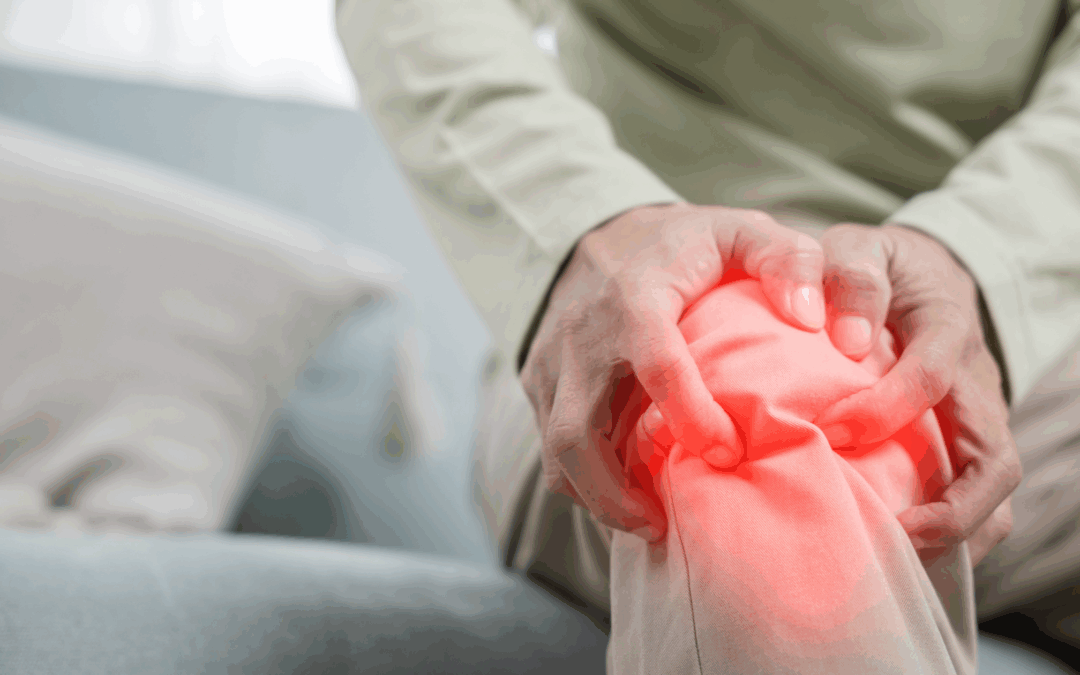Joint pain can creep in slowly or hit suddenly—but either way, it can impact your mobility, mood, and overall quality of life. Whether you’re dealing with age-related wear and tear, chronic inflammation, or recovering from an injury, adopting everyday habits that support joint health can make a world of difference. The good news? You don’t always need a prescription to find relief. A few simple lifestyle adjustments can go a long way in keeping your joints strong, flexible, and pain-free.
Here are natural, evidence-backed habits you can incorporate into your daily life to support your joints and reduce discomfort.
1. Keep Moving—But Move Smart
Movement is medicine for your joints. Staying active helps lubricate the joints, strengthen surrounding muscles, and maintain a healthy range of motion.
- Low-impact exercises like walking, swimming, biking, and yoga are excellent choices.
- Strength training helps stabilize joints and reduce stress on them.
- Stretching regularly keeps muscles flexible and reduces stiffness.
Tip: Avoid long periods of inactivity. If you sit at a desk, stand up and stretch every hour.
2. Maintain a Healthy Weight
Carrying excess weight puts unnecessary pressure on weight-bearing joints—especially the knees, hips, and lower back. In fact, for every extra pound you carry, your knees experience about four extra pounds of pressure.
- Shedding even 5–10% of your body weight can significantly reduce joint strain and pain.
- Focus on slow, sustainable weight loss through diet and exercise.
Bonus: Weight loss also lowers systemic inflammation, which can ease joint pain.
3. Prioritize Anti-Inflammatory Nutrition
What you eat has a direct impact on your inflammation levels and joint health. Incorporating anti-inflammatory foods can help reduce pain naturally.
- Foods to eat: Fatty fish (like salmon), leafy greens, berries, olive oil, turmeric, ginger, nuts, and seeds.
- Foods to limit: Sugar, red meat, processed snacks, and fried foods.
Tip: A Mediterranean-style diet is particularly joint-friendly.
4. Stay Hydrated
Cartilage—the flexible tissue that cushions your joints—is made mostly of water. Staying hydrated keeps this tissue lubricated and reduces friction during movement.
- Aim for at least 8–10 glasses of water per day, more if you’re active or in a hot climate.
- Herbal teas and water-rich fruits like watermelon and cucumber also count toward hydration.
Dehydration can cause joint stiffness and increased sensitivity to pain.
5. Support Your Joints with Supplements
Certain natural supplements have been shown to support joint health and reduce inflammation.
- Glucosamine and chondroitin: May help rebuild cartilage and reduce pain.
- Turmeric/curcumin: A powerful anti-inflammatory.
- Omega-3 fatty acids: Found in fish oil, these reduce inflammation system-wide.
- Collagen peptides: Support cartilage and connective tissue integrity.
Always consult your healthcare provider before starting a new supplement.
6. Use Proper Posture and Ergonomics
Slouching or using improper body mechanics can stress your joints over time. Make small adjustments to support joint alignment throughout the day.
- Sit with your back straight, feet flat on the ground, and shoulders relaxed.
- Use supportive chairs or standing desks as needed.
- When lifting objects, use your legs—not your back—and keep items close to your body.
Ergonomic tweaks at your workstation can prevent repetitive stress injuries.
7. Get Plenty of Restful Sleep
Quality sleep is essential for healing and reducing inflammation. During deep sleep, your body produces hormones that repair tissue and regulate immune response.
- Aim for 7–9 hours of sleep per night.
- Create a calming bedtime routine: turn off screens, dim the lights, and avoid caffeine late in the day.
- Consider supportive pillows or a mattress that helps align your spine and joints.
Poor sleep is linked to increased perception of pain and joint stiffness.
8. Manage Stress Effectively
Chronic stress triggers the release of cortisol, a hormone that can promote inflammation in the body. Reducing stress can ease both physical and emotional tension that often worsens joint pain.
- Try meditation, deep breathing exercises, journaling, or spending time in nature.
- Make time for hobbies, connection with others, and digital detoxes.
Mind-body practices like tai chi and yoga offer both physical and mental relief.
9. Avoid Smoking and Excess Alcohol
Smoking reduces blood flow to joints and damages connective tissue. Meanwhile, excessive alcohol can deplete your body of nutrients and contribute to inflammation.
- If you smoke, seek out resources to quit—it can significantly improve joint and overall health.
- Drink alcohol in moderation, if at all.
Small lifestyle changes add up over time—quitting smoking is one of the most impactful things you can do for joint health.
10. Listen to Your Body
One of the most underrated habits is simply tuning in to your body’s signals. If an activity causes joint pain or stiffness, it may be a sign you need rest or a modification.
- Alternate between activity and rest.
- Don’t push through sharp or persistent joint pain.
- See a healthcare provider if symptoms don’t improve or worsen.
Early intervention can prevent long-term joint damage.
Final Thoughts
You don’t need to overhaul your life to take better care of your joints. By adopting small, consistent habits—like staying active, eating anti-inflammatory foods, and managing stress—you can support your body’s natural ability to maintain strong, pain-free joints.
These habits are powerful on their own but even better when practiced together. Start with one or two changes today and build on your progress each week. Your joints will thank you for years to come.
